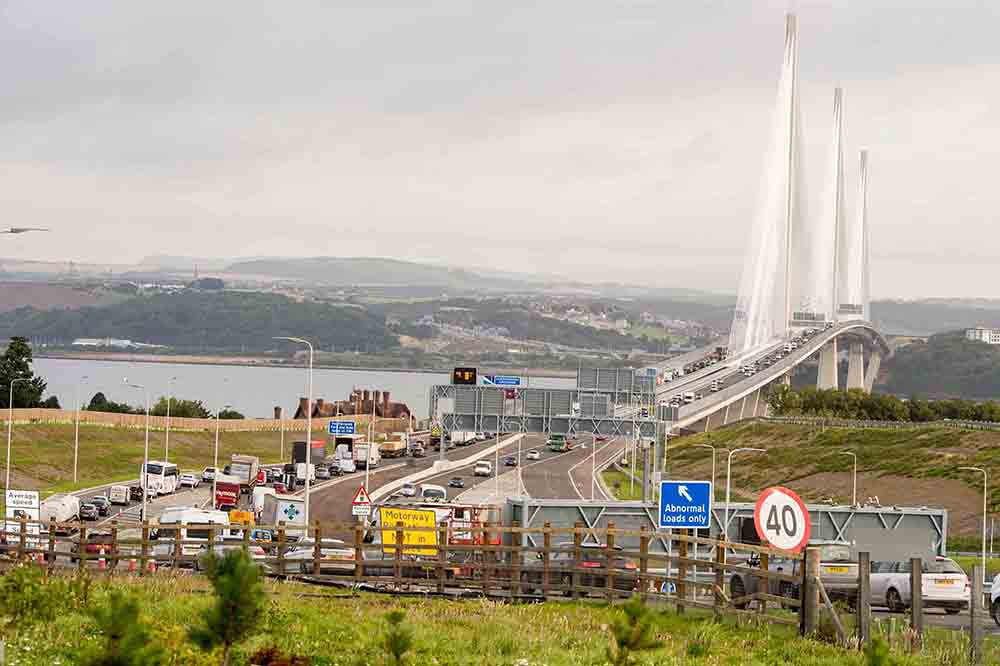MORE than 20 motorists have been hit by falling debris or ice from the Queensferry Crossing since it opened.
Due to the incidents, the £1.35 billion bridge has cost the taxpayer over £17,500 in compensation claims since August 2017.
The crossing was branded a “national embarrassment” by Fife MP’s in January due to the bridge being constantly closed when icy conditions hit.
In July last year ice sensors were installed on the bridge to provide early warnings when conditions are conducive to ice accumulating.

But just this year alone, carriageways on the bridge have been closed for in excess of six hours after ice was spotted falling from suspension cables.
Since opening the bridge, Transport Scotland has received 23 compensation claims with the vast majority of those claims being in the last year.
New figures obtained through a Freedom of Information request today revealed that the government has paid out £17,511 in claims relating to falling ice and debris.
One particularly icy day last year saw fourteen driver lodge claims for falling snow and ice, costing £17,324.
Two of the commuters from 2020 were injured by the incidents and lodged personal injury claims.
In 2019 six commuters received pay outs totaling £187 including three drivers were compensated for debris falling from the bridge.
Another two motorists claimed for falling snow/ice and one driver received damage to his motor from falling signage.
There have been two compensation claims lodged this year and another one from 2018 which does not appear to have been settled yet.
Scottish Labour transport spokesperson Alex Rowley today branded the bridge a “joke”.
He said: “To build a £1.3bn bridge in Scotland without factoring conditions such as ice and snow is beyond belief.
“The Scottish Government may have installed sensors to combat the problem but as recently as January we saw massive tailbacks as drivers faced detours due to the bridge being closed.
“Now we find that claims to the tune of £17,324 were paid out last year to compensate for damage done to cars from falling ice and snow.
“It’s a joke.
He added: “The Scottish Government must own up to its failures and offer guarantees that it can provide safe crossings of all vehicles in severe winter conditions.”
Images since the bridge opened show the damage inflicted onto motorists below with large chunks of snow and ice smashing windscreens falling from heights of 683ft.
A spokeswoman for Transport Scotland today said: “We currently do not have a viable solution which will prevent ice accretion on the bridge.
“Nevertheless, much work has been undertaken in the last two years and various options are being considered for mock-up laboratory and on-site trials.
“On the Queensferry Crossing, in common with the vast majority of bridges world-wide affected by ice, management is through operational measures – i.e. by weather forecasting, monitoring and closing the carriageway when necessary.
“Our operational procedures to manage ice accretion on the Queensferry Crossing have worked well and have ensured an adequate response to public safety requirements.”
She added: “Ice on the cables was considered as a potential issue during the design of the bridge, but was expected to be a relatively rare event in light of historical experience of other cable-stayed bridges in the UK.
“Where ice accretion is an issue on other structures around the world, it is understood that no bridge operator has yet identified a completely successful prevention or removal methodology and in most cases, bridge closures are required to allow physical removal or natural melting of ice.”